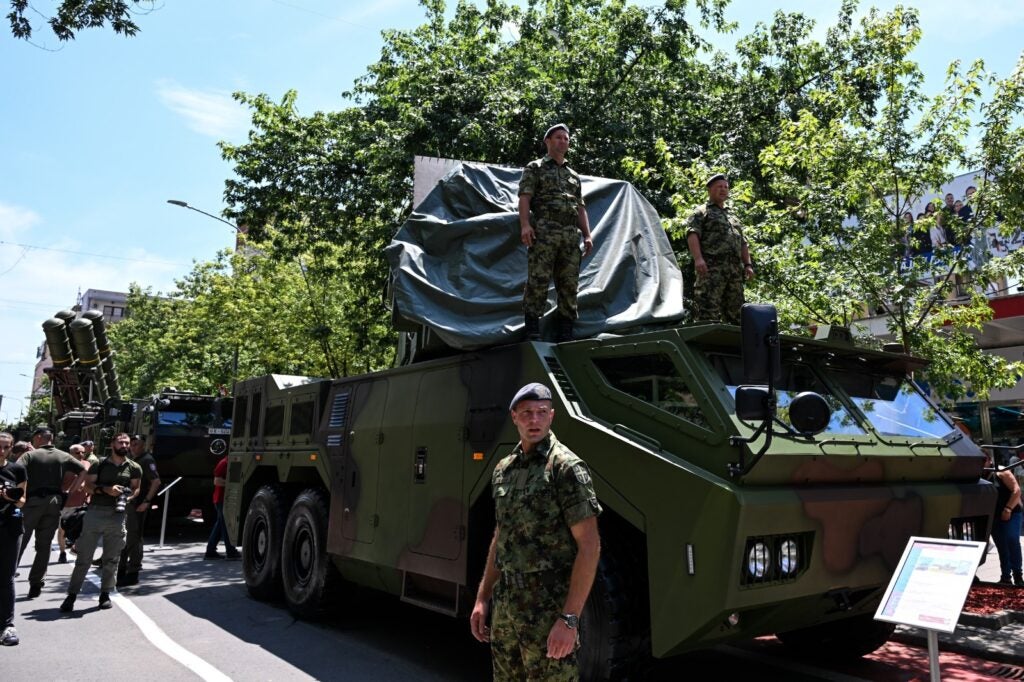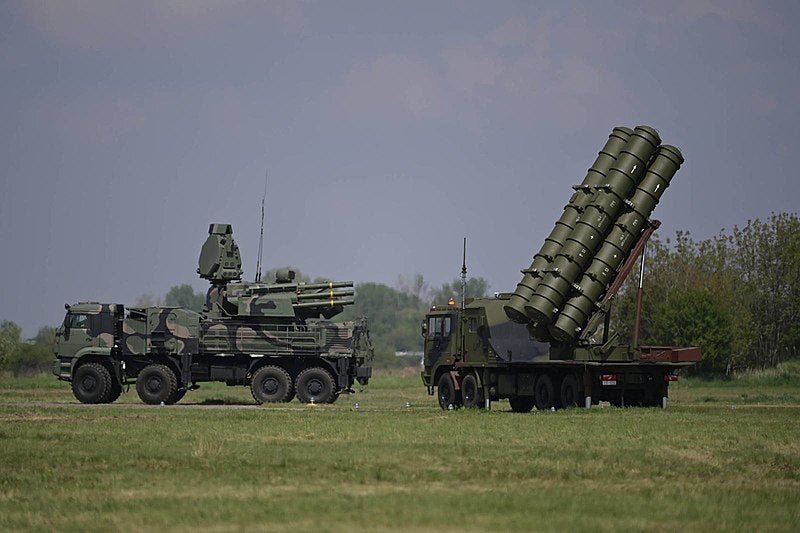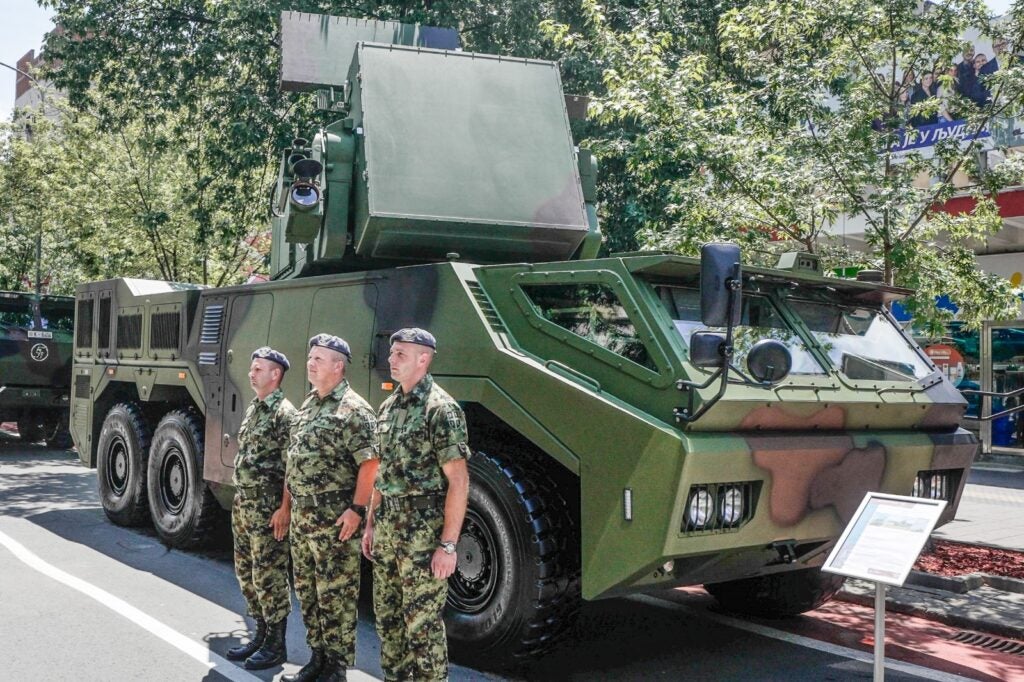Serbia Procures HQ-17AE Short-Range Air Defense Missile Systems From China
The Serbian Ministry of Defense announced that it had purchased HQ-17AE short-range air defense missile systems from China as part of an ongoing modernization program to strengthen the armed forces’ defense capabilities and significantly increase combat readiness, and that the first units had arrived in the country. The new acquisition, the latest fruits of the intensifying defense industry relations between Serbia and China, was unveiled for the first time during a military parade at the Kosovo Heroes’ Square and Vidovdanska Street in the city of Kruševac on the occasion of the country’s largest religious holiday, the Feast of Vidovdan (also known as St. Vitus Day).
During the ceremony, Serbian Prime Minister Miloš Vučević said that they were to display the recently acquired HQ-17AE short-range anti-aircraft defense system from the People’s Republic of China, adding that this was the first time these systems had been seen by anyone outside of the relevant units. Vučević also underlined that HQ-17AE systems will provide even better protection of Serbian airspace and will be a perfect duo with the country’s most powerful air defence weapon, the FK-3 (the export variant of China’s HQ-22 long-range air defense missile system).

Details such as the number of complexes ordered, and the contract value are currently unknown, as Serbian authorities did not previously inform the public about the purchase of this short-range air defense system. As a result, it will be clear in the coming days whether the HQ-17AE anti-aircraft missile complex displayed at the military ceremony fulfills the entire contract or if additional batches of equipment will be delivered to Serbia in the future. However, if we accept claims in the local press that these systems were purchased as an alternative due to problems with the procurement of the previously planned Pantsir-S1 medium-range surface-to-air missile and anti-aircraft artillery system with the outbreak of the Russian-Ukrainian war, Serbia is likely to receive more HQ-17AEs in the coming days.

Despite being a candidate for European Union membership, Serbia’s military cooperation with China extends beyond the HQ-17AE system. Serbia had previously acquired CH-92 and CH-95 unmanned aerial vehicles, FT-8C laser-guided munitions, and HQ-22 medium-range anti-aircraft missile systems from China. While NATO and the United States regard this partnership as problematic, the Belgrade government claims that the weapons and equipment purchased from China are primarily for defense and will be used to protect the homeland. At every opportunity, the parties also reiterate their intention to expand existing cooperation in the future through new military agreements.

